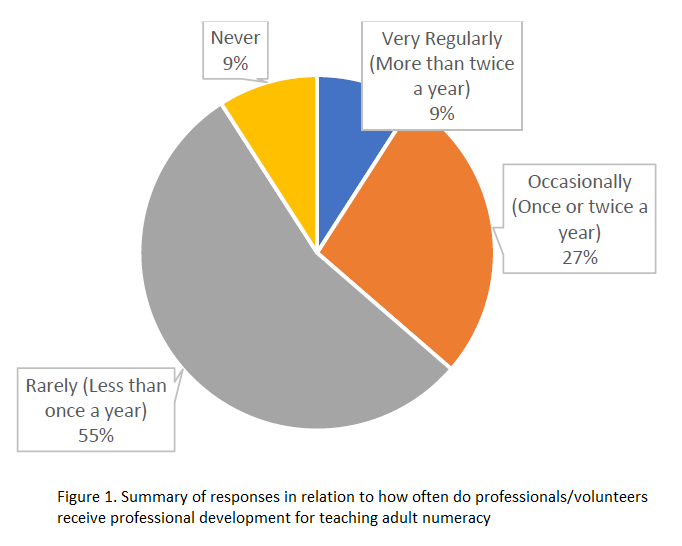SURVEY
The CENF research team conducted field research in a bid to identify the main challenges facing adult numeracy education across European countries.
CLICK HERE FOR THE FULL SURVEY REPORT CLICK HERE FOR A SURVEY QUESTIONNAIRE ON MATH ANXIETYPROBLEMS IN DIFFERENT JURISDICTIONS
Research has shown that adults who struggle with numeracy are more likely than others to have lower incomes, have trouble finding employment, and suffer from poorer physical and mental health (Carpentieri, Litster, & Frumkin, 2010; Parsons & Bynner, 2005; Tout et al., 2017). Hence, it is critical that every effort is made to remove or address any obstacles or challenges that prevent adults from developing numeracy competences and increasing the quality of their numerate behaviour.
The survey sought to investigate the main challenges faced by adult educators and policy makers when delivering numeracy provisions. The survey was initially designed and piloted with the assistance of a Survey Research Advisory Group (SRAG) and it was then distributed to leading figures in the area of adult numeracy education in a large number of EU states (n = 33). Twelve countries offered responses and the main challenges identified in the research related to the lack of a standardised definition of numeracy, the lack of a standardised framework to support numeracy education among adults and the need for professional development of adult numeracy tutors. In the report we look at how these problems manifest themselves in different jurisdictions and offer some suggestions for overcoming these significant challenges in the future.

MAIN FINDINGS
The majority of jurisdictions who responded indicated that professionals were responsible for the delivery of adult numeracy education. Only 19% of respondents (n=2) suggested that this responsibility lay with untrained volunteers or professionals.
The study found that training was not made available to numeracy educators on a regular basis. In the majority of jurisdictions (n=7) adult numeracy tutors engaged in professional development activities less than once a year with one other jurisdiction reporting that their tutors never engaged in any kind of professional development.
Jurisdictions reported a lack of clarity around the term numeracy and what exactly it entailed. Many reported that a working definition of numeracy was not in place for adult learners while many more stated that while numeracy was defined in their jurisdiction the definition provided lacked clarity.
Respondents in many jurisdictions indicated that the conceptualisation of numeracy was quite narrow. In particular, many reported that numeracy was viewed as a “basic knowledge of mathematics” or a mirror image of literacy in a quantitative sense and this contributed to low levels of understanding of the convoluted and intricate nature of numeracy.
Another significant challenge identified in this phase of the study was in relation to the status attributed to numeracy and how this differs from the importance attributed to numeracy. The vast majority of jurisdictions (n=10) reported that literacy was held in much higher regard than numeracy, with only two of these jurisdictions reporting that efforts were being made in recent years to address this imbalance.
[learn_press_profile]